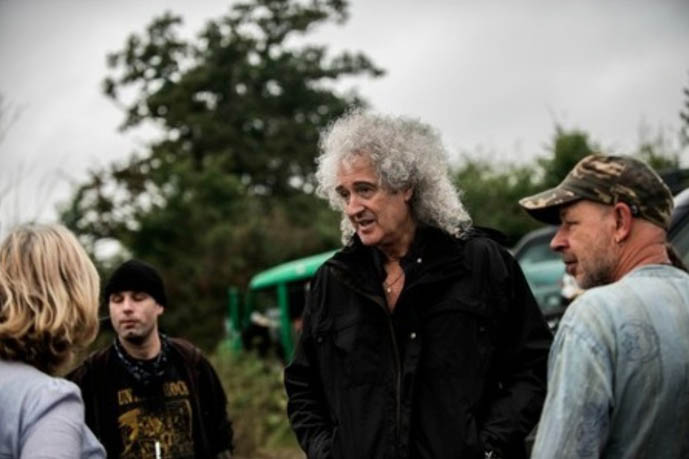WESTERN MORNING EXPRESS
3 October 2013
The badger cull trial in Somerset is entering the final few days with both sides of the hugely controversial debate claiming success.
Protesters who have spent the past six weeks trying to sabotage the free shooting pilot scheme are confident marksmen will have fallen far short of killing the target number of badgers, and have branded the exercise a “massive failure”.

Rock star Brian May, who has been leading calls against the cull, visited the cull zone in Somerset this week and met anti-cull patrollers and police officers. He said he would be joining a “wounded badger patrol”. The rock star met protesters and even signed some of their high-visibility jackets and other items during his visit.
But the chairman of the influential Conservative Rural Advisory Group (RAG) Richard Haddock, says a low percentage of kills will not prevent roll-out of ten fresh culls next year, provided the animals were shown to have been slaughtered humanely.
The police commissioner in Avon and Somerset, Sue Mountsteven, told the WMN yesterday she is satisfied that the operation to police the night-time cull, which has been criticised by civil rights campaigners, has gone “as well as could be expected”, apart from a few “hiccups”.
RAG spokesman Mr Haddock, a farmer who has lost cattle to bovine TB, says he understands from people close to the killing that the dozens of shooters have “not lost a wounded animal”. “The aim was to kill a certain number, yes, but it is not just about the amount – we wanted to see the effect of free shooting,” he added. “It has been professionally done – the ammunition has been counted out and the empty shells counted back in.”
The two pilot culls, part of the Government’s programme to eliminate bovine TB, are coming to an end – the Somerset cull on Monday and the cull around Tewkesbury in Gloucestershire a week later.
Commissioner Mountsteven, who has monitored the pilot cull in West Somerset closely, claims policing has been comparatively straightforward, though costly.
Speaking at the Dairy Show, at Shepton Mallet, Mrs Mountsteven said: “The police have always been impartial. There has been a need for us not to take sides, and to allow those people who want to protest to do so peacefully.
“From feedback, I think we have got the mix right. There are not many messages about things that have gone wrong.”
The National Farmers’ Union, tasked with organising the culls, have been very supportive of the police in extremely difficult circumstances, she added.
Melanie Squires, the National Farmers’ Union regional director in the South West, said the cull operations would continue. “We are trying to overcome the blight of bovine TB,” she said. “That is the whole purpose of the cull. The result of the pilot culls will be evaluated and honestly we cannot come to any conclusions until the whole process has been completed.” She congratulated all the farmers and everyone involved in carrying out the cull operations “in a challenging situation.”
Pat Bird, a dairy farmer in Cornwall who had restrictions on her herd after TB was found, thinks free shooting of badgers is a “barking mad” way to tackle the problem, but admires the farmers involved. “They are very brave and I take my hat off to them for holding these culls, particularly when you see the abuse, the trespass and the cost to them,” she added. “Nobody can pre-judge how it has gone – there will be an inquest by an expert panel to see if it has been humane.” – we will just have to wait. “Will it carry on? That’s up to the farmers. There is no money and the Government is cutting the budget.”
Defra said it did not wish to make any comment on the culls while they were still in operation.